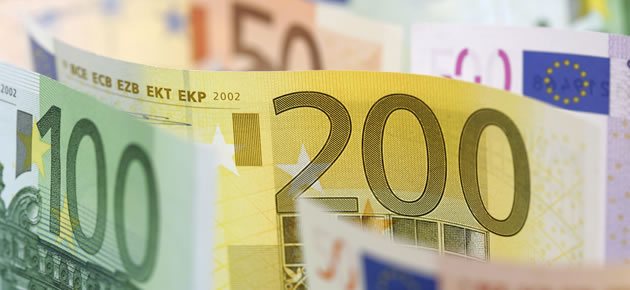The Euro was trading at its weakest level in 19-months on Monday and looks set to remain weaker for the foreseeable future against the Pound as the UK and Eurozone monetary policy continues to diverge.
Adding to the sense of divergence between the Bank of England and the European Central Bank BoE Deputy Governor Charlie Bean told a Sunday newspaper that he would welcome an interest rate rise from the current record lows as it would show that the UK economy is finally returning to normality.
“An increase will be a symbolic step, because it will be an indication that we are on the road back to normality. I would welcome us getting on the path of normalization, as a demonstration that the economy is healing,” Bean said in an interview with the Sunday Times.
Beans comments add to those made by BoE Governor Mark Carney who only last week hinted that an interest rate rise could occur sooner than economists expected.
The Euro is also finding itself under pressure from increased demand for safe haven assets as concerns over the escalating situation in Iraq raised fears over a new Gulf War.
Sunni militants from the terrorist ISIS group launched an offensive which has claimed large swathes of territory and saw the Iraqi drop their arms and flee.
Over the past 24 hours the Iraqi government has launched a counter offensive which regained some lost ground.
Today’s Eurozone inflation rate data matched economist forecasts. The year on year core inflation rate came in at 0.7%, a decline from April’s figure of 1.0%.
Month on month the regions inflation rate declined by -0.1%, raising the possibility that the ECB could introduce further monetary easing measures in order to tackle the threat from deflation in the region.
Consumer prices in 18 countries using the euro rose by 0.5% on the year in May, keeping them in the ‘danger zone’ of below 1%, the EU’s statistics office Eurostat data said.
The data also highlighted that three of the regions nations has already fallen into deflationary territory.
Greece saw inflation fall a further 2.1% in May, Portugal was at -0.3% and Cyprus at -0.1%. Only Luxembourg, Austria, Slovenia and Finland had an annual inflation rate of 1% or more.
Euro Exchange Rate News:
[table width=”100%” colwidth=”50|50|50|50|50″ colalign=”left|left|left|left|left”]
Currency, ,Currency,Rate ,
Euro,
Euro,
Euro,
Euro,
[/table]
